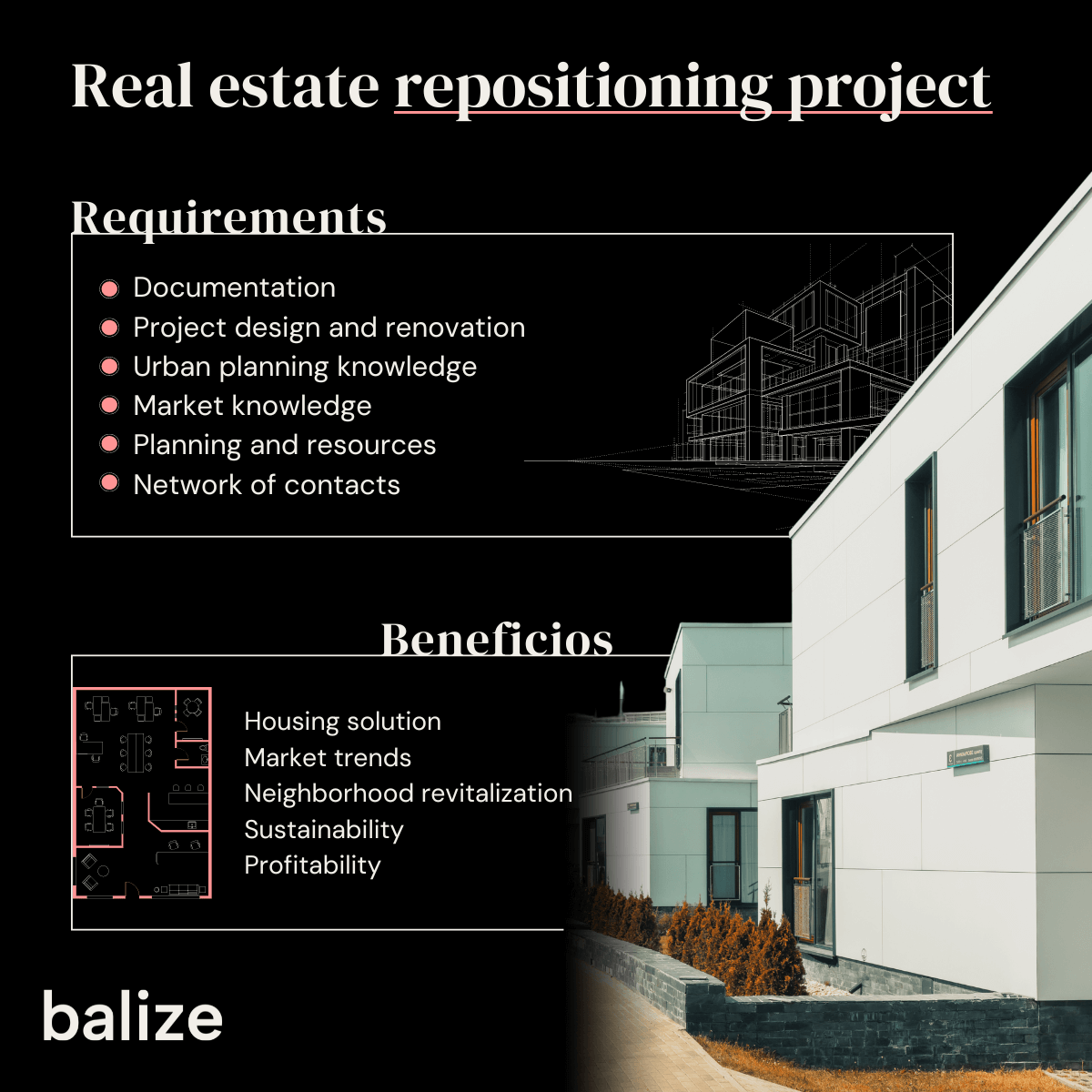Real estate repositioning involves transforming a property into another asset that has higher demand. Currently, in Spain, this type of product is residential. This process may involve a change of use, such as converting a commercial space or office into a residential unit, and sometimes even requires the conversion of an entire building. Another common scenario is the division of a single large apartment into several smaller ones. There are properties of 200 to 300 square meters with five bedrooms and four bathrooms that have less market appeal compared to if they were converted into two or three 80-square-meter apartments, which together present a much more profitable opportunity for the investor.
Requirements for real estate repositioning
An investment in residential repositioning requires a well-planned project carried out by professionals with experience in the sector. There are different phases to cover and aspects to consider, the main ones are:
1. Documentation: A preliminary study of the property, including its location, condition, characteristics, and potential. An expert can identify whether the asset represents an opportunity despite its current state.
2. Project Design and Renovation: An architect is needed to develop the most suitable project, maximizing the property’s potential, along with a team of professionals to execute it.
3. Urban Planning Knowledge: It is crucial to be aware of local regulations affecting the property, maintain contact with the City Council, handle necessary paperwork, etc. Regulations for these types of processes vary between municipalities and autonomous communities. For example, the conversion of a commercial space to a residential unit involves more restrictions in Catalonia than in Andalusia.
4. Market Knowledge: It is absolutely necessary to analyze the local market and compare with comparable properties in the area to determine pricing. Consulting the registry data is also essential for this process.
Additionally, good project planning should account for potential unforeseen issues during construction, permits, etc., to organize resources and timelines optimally.
Experienced professionals in the real estate repositioning sector highlight that another essential factor for the success of the project is having a network of contacts, primarily for identifying opportunities.

Benefits of real estate repositioning
Real estate repositioning has become an increasingly common practice, driven primarily by the shortage of residential supply to meet housing demand. Especially in large cities, the lack of available land for new construction has encouraged alternative solutions like repositioning. Therefore, some of the benefits achieved through this practice are:.
balize real estate repositioning
balize has invested over 10 million euros to date in real estate repositioning projects in premium locations such as Madrid and Barcelona. The execution timeline in this sector is quite agile, ranging from eight to eighteen months, and the average return on projects is 15%.

